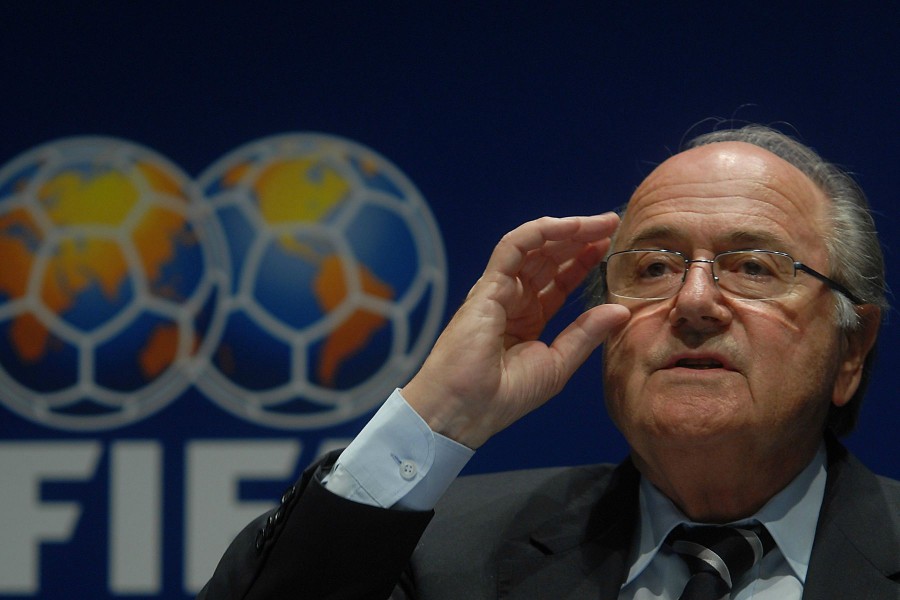FIFA Falters in Supporting Women’s Soccer
Over the past few decades, the United States’ fondness of professional soccer has grown steadily, reaching new heights in recent years. In 2014, the Men’s World Cup in Brazil saw an adamant outburst of American praise and excitement for the U.S. team. At this year’s Women’s World Cup in Canada, the U.S. team soared to victory amidst more fans and support than ever recorded before. According to Fox News, TV ratings showed that the number of viewers who watched the final game of the tournament clocked in around 25.4 million — double the viewers of the 2011 U.S.-Japan championship four years ago.
For the first time, the United States is embracing the sport that until now had been one of global news rather than of national. Also for the first time, the women’s side of this sport is receiving nearly equal attention in an environment that was previously extremely male-dominated. These women, however, still face glaring forms of discrimination from the International Federation of Association Football (FIFA), due to the severely outdated nature of the soccer league’s system. Female soccer players deserve to be acknowledged with the same respect and deference that the male players receive, and FIFA must change the way they regard and treat women’s soccer teams.
While the women on the soccer fields of Canada this past summer left the world in awe with their skill and precision, they were preoccupied with a particular reality that, while seemingly minute, points to the larger issue of FIFA’s discrimination against women. Until 2015, no World Cup, regardless of gender, had been played on artificial turf due to lower and hazardous quality.
“Not only are they long lasting injuries, but there are long-term effects of playing on turf,” U.S. forward Alex Morgan said. “It takes longer to recover from a turf field than natural grass.”
According to The New York Times, the decision to implement artificial turf rather than a grass field in Canada brought 84 female players from 13 different countries together to fight the ruling and sue FIFA for discrimination.
“There were companies [that] offered to pay for these grass fields to be put into these stadiums,” U.S. forward Abby Wambach said. “They offered FIFA… to do it for free [in] all the stadiums.”
She later added that “There’s no… world-class footballer on the planet that would… play on artificial turf [instead of] natural grass.”
Even under circumstances that would have minimized FIFA’s losses, the organization failed to realize players’ demands for grass fields at the 2015 Women’s World Cup. FIFA’s negligence toward the women’s teams is a violation of what many players see as a fundamental right of all professional soccer players on the world stage.
Meanwhile, FIFA remains in hot water over numerous incidents regarding millions of dollars worth of bribery, most of which have set Blatter as the chief offender of the crimes. The fact that FIFA, one of the world’s most highly valued and well-known enterprises, could not bring themselves to spare enough money for its female soccer players to play soccer on a real grass field rather than on artificial turf, especially given the large sums of money they were receiving, is quite disturbing.
In terms of past shows of support for the women’s soccer teams on behalf of FIFA, Blatter has a colorful history of verbal blunders which clearly provided the women with plenty of substantiation for their filing of discrimination against him. When asked in 2004 what he planned to do to further popularize women’s soccer, Blatter initiated a reaction of anger not only from the female soccer players themselves, but from women all around the world.
“Let the women wear more feminine clothes like they do in volleyball,” Blatter said in January of 2004 according to BBC Sport. “They could, for example, have tighter shorts. Female players are pretty, if you excuse me for saying so, and they already have some different rules to me — such as playing with a lighter ball. That decision was taken to create a more female aesthetic, so why not do it in fashion?”
While the evidently inappropriate matter of the remark was duly noted by all who heard it, what was most appalling was Blatter’s implication that the only way to get viewers to pay attention to women’s soccer is to amp up the players’ sex appeal and coerce them into being more visually appealing to audiences. His words make it seem like the only value held by females is their ability to entice spectators with their physical desirability rather than their talent, skill or personality. Blatter’s comment may have pushed him further and further into the throngs of infamy, but it also functioned as an expose of FIFA’s discrimination on a grander scale.
Yes, Blatter was the main perpetrator of these discriminations and demeaning deeds, but FIFA as an organization overall is just as at fault as its president, because it allowed Blatter to climb the hierarchical ladder and retain the most powerful position in international sports despite his blatant sexist views over the years, proving their views as a whole align, or at least don’t severely contrast, with Blatter’s.
FIFA’s lack of professional support for women’s soccer is completely outrageous and there can be no excuse for their backward views, especially at a time where fans are actively rooting for women’s teams. The outmoded manifestations of sexism displayed by FIFA should, once and for all, be history and be replaced with the simple belief that the only thing that matters in the professional soccer league is the sport itself, not the gender of the players.
FIFA’s best hope to redeem themselves on this front is simple: select a more forward-thinking, equality-minded president to head the organization. The election won’t take place until February 26; however, when it does, the results had better be good. The female soccer players of the 2015 FIFA Women’s World Cup, and female players everywhere, have demonstrated their worthiness of having an equal playing field.




